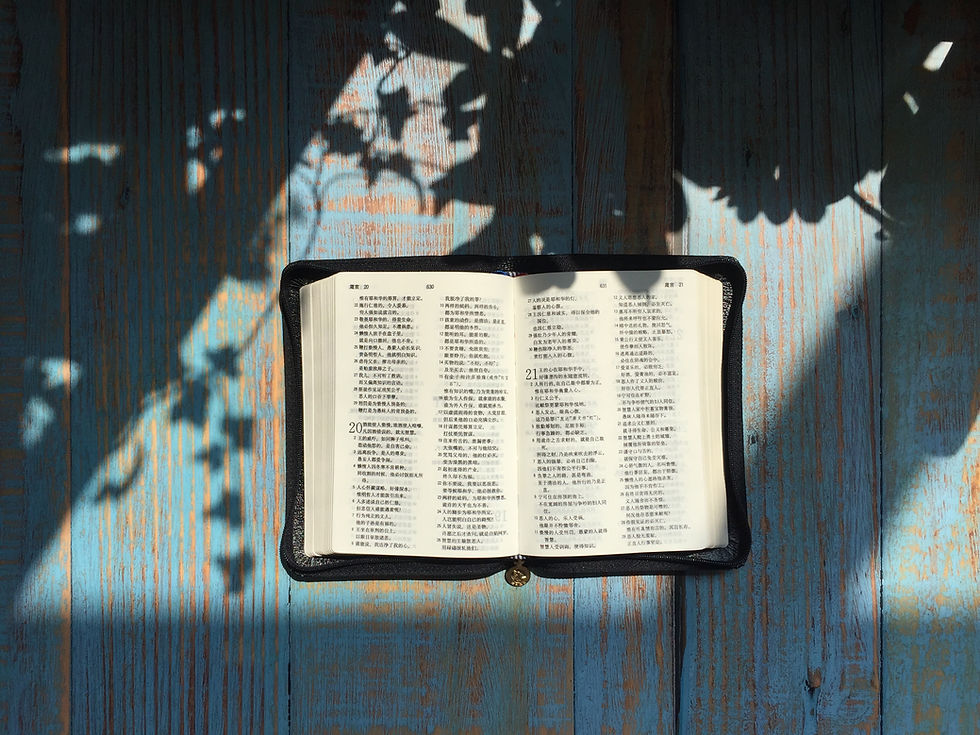Catholic Purgatory
- Gary Heppner
- Jul 30, 2021
- 3 min read
-----------------------------------------------------------------------------------------------------
CCC means "Catechism of The Catholic Church."
CB means "Catholic Bible Fireside and Church Edition.”
I will be pointing to different doctrines in the Roman Catholic church and comparing them to the Gospel in the Bible. Is Rome faithfully proclaiming the Gospel or are they in violation of Galatians 1:6-9? CB page 277 New Testament "I am amazed that you are so quickly deserting Him who called you by the grace of Christ, for a different gospel: which is really not another: only there are some who are disturbing you and want to distort the gospel of Christ. But even if we, or an angel from heaven, should preach to you a gospel contrary to what we have preached to you. He is to be accursed.
What were indulgences? Indulgences require a payment of money to pay for the past sins releasing a person from Purgatory.
A treasury full of Merit and Indulgences (still in effect today]
This treasury has unspeakable value, which can never be exhausted. The Virgin Mary's treasury contains prayers and good works of all the saints, available to all the saints who carried out the will of the Father. The combination of Jesus, the saints, and Mary's merits are available and can be withdrawn as needed to exit Purgatory. This has been confirmed by pope Boniface V111.
Indulgences are still taught by Rome. Rome would have you believe that the practices of indulgences by the church ended centuries ago. A post-Vatican 11 document dated January 1, 1967, by Pope Paul V1, states that this doctrine is today still in force in Catholic teaching.
Here is what Catholic doctrine and teachings say.
CCC 1472-75 Teaches that sins are expiated [removed] in purgatory through a "cleansing fire" and that we must strive to accept this temporal punishment of sin in purgatory as a grace.
[CCC 1030,31 ]“All who die in God's grace and friendship, but still imperfectly purified, are indeed assured of the eternal salvation; but after death, they undergo purification, so as to achieve the holiness necessary to enter the joy of heaven."
Does the gospel confirm the above?
John Hardon a noted historian in the Catholic church says, quote, “there exists purgatory, in which the souls of the just who die with the "stains of sins" are cleansed by expiation (removal] before they are admitted to heaven." Who are the souls of the just?"
Hardon again, "They must first be cleansed before they can see the face of God." "What are the stains of sin? Hardon again, "Temporal punishment due to venial or mortal sins already forgiven as to guilt, but not fully remitted as to a penalty when a person dies...."
Council of Trent (1563] was formed to answer the accusations made by Martin Luther who was a Catholic priest. He was responsible for starting the reformation of the protestant church. The responses in the Council of Trent documents to Martin Luther's accusations are still in effect today.
One more statement from the Council of Trent "wherefore, according to the tradition of the Apostles, it is rightly offered not only for the sins, punishment, sanctification, and other necessities of the faithful who are living but also for those departed in Christ but not yet fully purified." Canon and decrees (collection of rules or test] of the Council of Trent page 146
Their statement of “not yet purified" contradicts 1 Corinthians 1:30-31 in the Catholic Bible it states, “It is due to Him that you are in Christ Jesus, who became for us wisdom from God; as well as righteousness, sanctification, and redemption. So that as it is written, whoever boasts, in The Lord." CB page 239-24 New Testament
Let's read Colossians 2:13-15 CB page 302 New Testament "Even when you were dead in transgressions and the uncircumcision of your flesh, he brought your life along with him [Jesus,] having forgiven us all our transgressions, obliterating the bond against us with its legal claims which were opposed to us, he also removed it from our midst, nailing It to the cross." Does the Gospel just read confirm what the CCC just stated?
Read 1 Peter 3;18 (CD page 358 New Testament] _"For Christ also suffered for sins once, the righteous for the sake of the unrighteous, that He [Jesus] might lead you to God." Note: no additional suffering in purgatory is required.
There are seven additional books in the Catholic Bible that are not in the protestant Bible. These are called the "Apocrypha." ( definition "To hideaway"] In the book of the 2 Maccabees 12:41-46-page, 566 Old Testament is where praying for the dead [purgatory] is stated. A separate print will be created to cover this subject.
Have questions? Email Gary: bibleanswer75@gmail.com




Comments